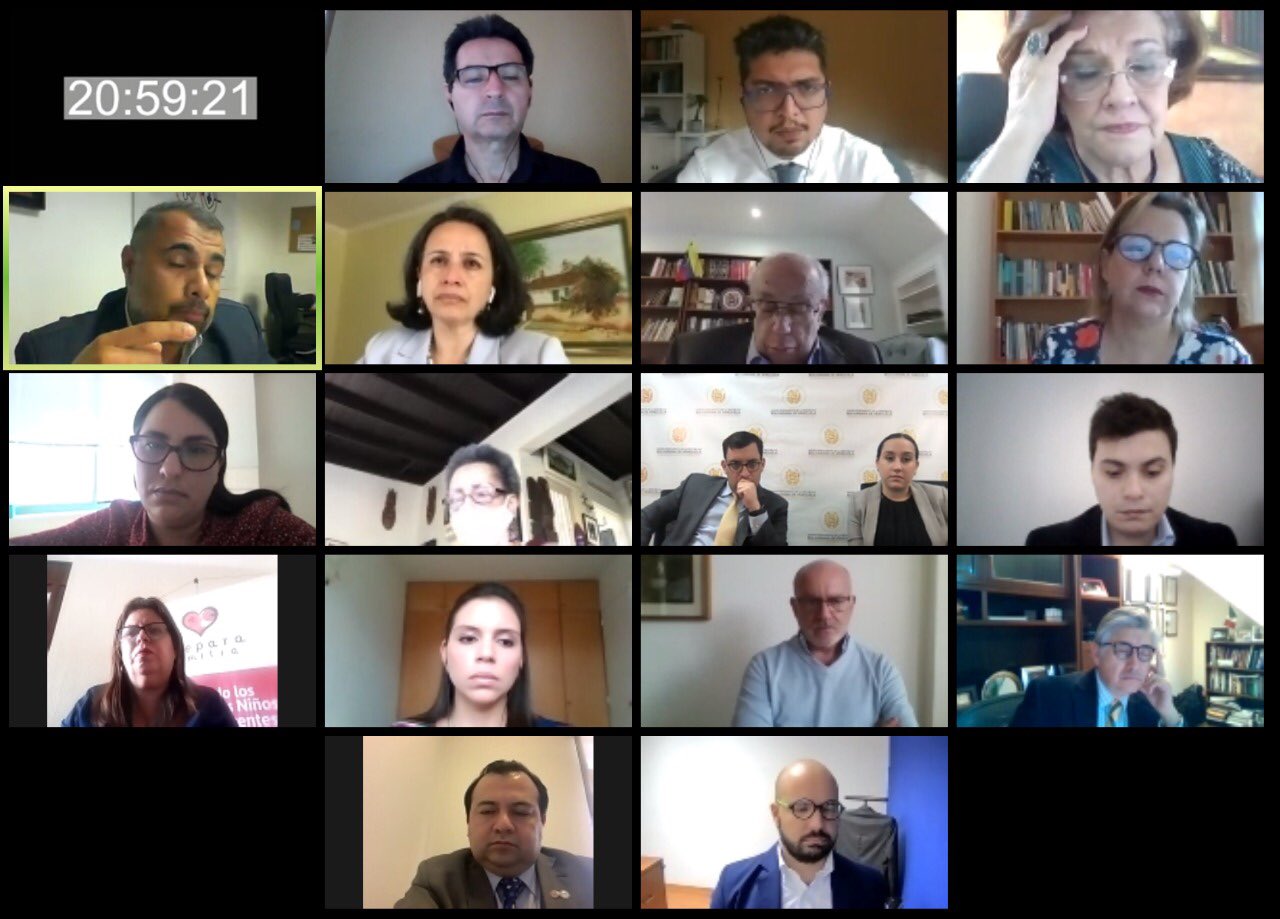Six basic humanitarian agreements. Human rights activists Rafael Uzcátegui, Feliciano Reyna and Verónica Zubillaga, proposed to Venezuelan political actors a plan of action to address the COVID-19 pandemic in Venezuela.
During the 101st emission of the videocast #ConLaLuz, led by the general director of Efecto Cocuyo, Luz Mely Reyes, the three activists agreed on the need for a “political truce” to assist those affected by the pandemic, the quarantine, and lack of access to food and fuel.
Reyna, president of the NGO Acción Solidaria (Solidarity Action); Zubillaga, a founding member of the Red de Activismo e Investigación por la Convivencia ( Network of Activism and Research for Coexistence, Reacin) and part of the meeting and dialogue group founded by the late Pedro Nikken; and Uzcátegui, general director of Provea, warned about the risk posed by the new coronavirus in the complex humanitarian emergency, the democratic deinstitutionalization in Venezuela, and the economic crisis that the country was already facing.
For the Acción Solidaria spokesperson, Venezuela faced a first tsunami wave as a consequence of the humanitarian emergency (corruption, loss of the rule of law, among others) and the forced migration of millions of people; Now that a second wave is expected due to SARS-CoV-2, the least we can do is to prepare so that this second wave does not carry away all that was left of the country.
People come first
“We have to move people to safety, preventing the wave from hitting as it did in other countries such as Italy and Spain,” Reyna said. The activist questioned the order of Nicolás Maduro to take to hospital 40 patients who were in home isolation, saying that it is contrary to the recommendations of the World Health Organization (WHO) of keeping patients at home, so as not to saturate the hospital capacity.
Zubillaga called to mind that it is not about forgetting the political conflict but momentarily pausing it. “We are obliged to negotiate because we are in a catastrophic deadlock,” he reiterated, recalling the words of analyst Alberto Barrera Tyszka.
Meanwhile, Uzcátegui criticized that military and political management bears primacy in a pandemic caused by a health event. “We find it weird that the Minister of Health, Carlos Alvarado, is not speaking during the crisis.”
He asked that not only the authorities or power factors with control of the territory and the health system or access to international resources, such as Nicolás Maduro and Juan Guaidó, respectively, be at the forefront of this fight but also civil society, technical experts, scientists, and humanitarian activists. He added the media and its responsibility to carry a message of serenity and proper handling of information to citizens.
What are the basic humanitarian agreements
1. Ensuring the arrival of resources and supplies from the international community. This can happen by recognizing the legitimacy of the National Assembly by the Nicolás Maduro administration. The resources would be administered by international humanitarian aid agencies.
“What happened yesterday (Wednesday) with the arrival of the first shipment of humanitarian aid in the country is an example of the kind of things that can be achieved when the two authorities agree. It was received by Unicef and they thank the international donor community for giving those 90 tons of aid, also possible by the efforts of the AN”, mentioned Uzcátegui.
2. Easing international sanctions, as requested by the UN High Commissioner for Human Rights, Michelle Bachelet, said Zubillaga. This would allow access to foreign aid. Also, paying attention to prison populations and political prisoners, who are more exposed to COVID-29 for being deprived of liberty.
3. Focusing on the most vulnerable population: older adults, the chronically ill, rural and indigenous populations in remote areas.
“People in a greater situation of vulnerability at this time must be cared for in a peremptory manner,” Reyna demanded from the Maduro administration.
4. Allowing the visit of the United Nations World Food Program (WFP) and achieving articulation with the United Nations Food and Agriculture Organization (FAO), which agreed on April 9 to help Latin America and the Caribbean together with 11 other international agencies.
Reyna explained that WFP can come as soon as it is requested to provide technical advice and supplies to agricultural producers and to design mechanisms to help the most vulnerable comply with the quarantine while being able to provide for their families.
5️. Guaranteeing access to fuel. Uzcátegui said sectors such as health personnel and food producers and distributors are not being prioritized amid the fuel crisis. Along the border with Colombia, a shortage of basic products in Paraguaipoa and Paraguachón in Zulia and San Antonio del Táchira has been created because large cities are privileged for fuel supply.
6. Giving primacy to scientific and epidemiological knowledge over political interest.
“We need basic humanitarian agreements to address the situation while acknowledging the complexity of the political conflict, and move forward and contribute to urgently tackling this pandemic,” said Zubillaga.
He also added that “this is not a war where the military has a leading role, it is a fight with a non-human adversary and us humans have to coordinate and establish the necessary connections for the life-saving medical supplies to arrive.”




